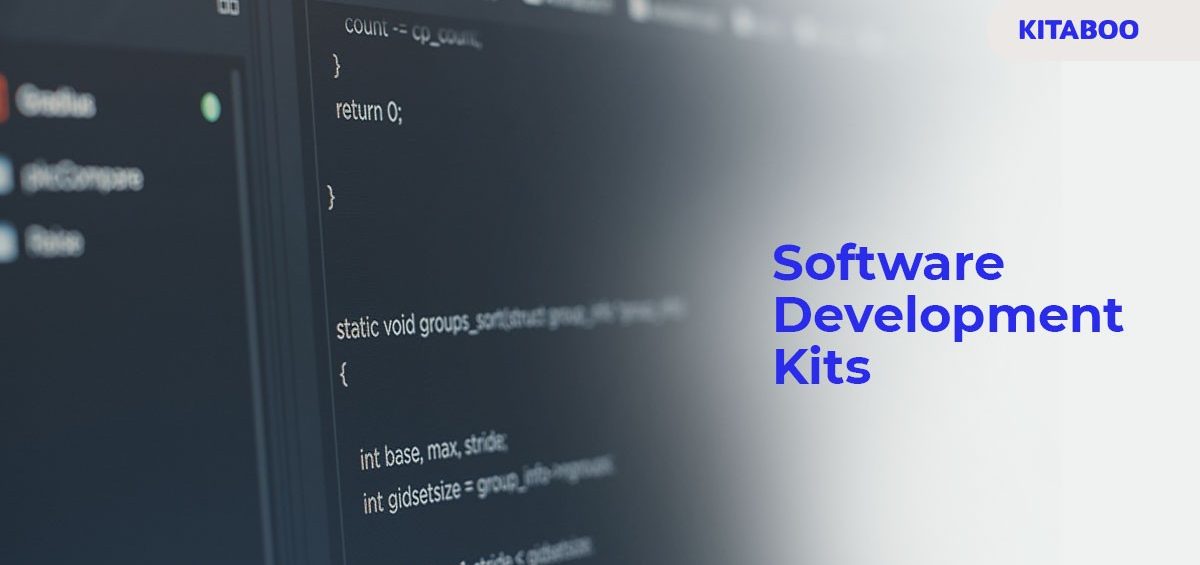Software development is a complicated task. It takes time, energy and resources to create a product specific to your business’s needs. Often, this deters businesses (non-IT) from either starting their own software development project or incorporating an existing software into their processes.
In such situations, it helps to have a toolkit ready at hand that contains everything that a software development project could possibly need. To that end, SDK or Software Development Kits are an essential element that businesses can use. Let’s understand what SDKs are and how your business can benefit from SDK installation.
What Is an SDK?
SDK is the acronym for Software Development Kit. It is exactly that – a ‘kit’ that contains all the necessary tools, programs, frameworks, etc., needed to develop software. It is also sometimes referred to as devkit.
A software development kit contains code samples, libraries, necessary documentation, and guides that aid developers in creating exemplary software. It can be said that a software development kit brings all the requirements for a software development project into one bundle – the SDK.
It is to be noted though, that there are dedicated SDKs for various platforms. For example, iOS would have specific SDKs, and Android would have its own.
How Businesses Benefit from SDKs?
SDKs make a developer’s work much easier. Amongst other things, they equip developers with already existing codes for the basic aspects of an app. This means the developer doesn’t need to start from scratch, instead they can build on existing code.
One great analogy is that with IKEA. An SDK is like an item you buy from IKEA – the package contains everything you need to put together a finished product. These are some of the most important components that come bundled in an SDK:
- Compiler
- Debugger
- API (Application Programming Interface)
- Libraries
- Documentation
- Network protocols
- Drivers
- Runtimes
- Testing & analytics tools
- Editors
So, how does all this help a business?
To begin with, an SDK helps reduce the turnaround time for software development, which in turn allows a business to send out its product sooner, at a lower cost to the company.
Secondly, an SDK gives a business more control over the end product by allowing them to decide how exactly the product should integrate with other applications, and it’s look and feel when integrated i.e. – SDKs give businesses the perfect branding opportunity.
Additionally, creating a quality product will attract other businesses. This increasing exposure for the brand and with an SDK in place, collaboration becomes easier.
Differences between an API and an SDK
The term API, refers to Application Programming Interface. When taking on a software development or integration project, this term is often used along with SDK. For the uninitiated, these two abbreviations can cause a lot of confusion. In truth, they are similar but not identical.
An API has only one function, and that is to help businesses connect two applications together by providing an environment where a connection can be set up.
Tabulated below are the other major differences between an API and an SDK.
Feature
Full Form
Definition
Purpose
Characteristics
Use case
API
Application Programming Interface
An interface that allows two applications to communicate with each other using simple commands.
Helps to connect two apps or software.
Fast & lightweight
When users wish to have specific functionality added to an existing application.
SDK
Software Development Kit
A collection of tools and peripherals that a user needs to develop fully functioning software.
Helps a developer with the required tools and framework to develop software
A utility-oriented bundle that is more comprehensive than an API
When users wish to develop an app or software from scratch
Steps for SDK Installation
While business owners don’t need to know the nitty-gritties of SDK installation, a basic overview can be helpful. In the example below, we’ve tried demonstrating the five steps of SDK installation for Android. Keep in mind, these steps can be extremely time consuming.
Step 1: Preparation
Before a developer begins with installation, they will prepare their computer with requirements in respect to hardware and software specifications. They must ensure that the software development module installed on the computer is compatible with the SDK for Android that they are planning to use.
Step 2: Unpacking the SDK
If the developer has downloaded the SDK already, they will now access the file on the prepared computer. SDKs are usually downloaded as zipped files (.zip) or .tgz files. They need to select a location that is both secure and accessible to unpack the SDK files.
Step 3: Installing the Required Plugins
Once unpacked, the developer must install certain plugins.
For the Integrated Development Environment(IDE) that they are using (for example, Eclipse), they need to install the Android Development Tools (ADT) plugin. If they don’t plan on using ADT for application development, they can skip this step.
Step 4: Adding Platforms & Components
An SDK package has separate modules that can be individually installed as components. In this step, the developer can use the Android SDK and AVD Manager (a tool that is unpacked with the SDK) to download the modules needed, install them into the IDE, and launch them.
Step 5: Exploring the SDK Directory
Although this step is optional your developer might choose to explore the components of the SDK installed. This is actually recommended as it gives the developer an overview of all that the package contains.
And with that, your application development can begin.
Popular Examples of SDKs
Software development kits are more popular than the layman realizes. Listed below are some of the most notable SDKs across various platforms, niches, and functions:
- For analytics, the top examples are Amplitude, UXCam, Flurry, Google Firebase, and Mixpanel
- For user authentication, the leading examples are XCode and Facebook SDK for Android
- For notifications and messaging, the best examples are Urban Airship and Amazon
- For advertising, the best SDKs are Google AdMob, MoPub, and InMobi
- For payments, Stripe and PayPal lead the SDK market
All the popular apps and web-based platforms you use are developed using robust SDKs that enable seamless experiences.
SDKs in Publishing
These days eBooks can also be published via an SDK. However, it’s important to choose the right one.
A good eBook SDK should allow for A/B testing, notifications, monetization options and analytics amongst other things.
You could begin your eBook publishing journey with KITABOO, a leading digital publishing platform. We provide an SDK that allows you to customize and embed the KITABOO reader’s features into your own reader app.
With KITABOO, you can provide your audience with an enriched content experience, exponentially improving your businesses internal and external engagement, content consumption, and outreach.
To know more, write to us at KITABOO@hurix.com.
Suggested Reads:
Discover How An Ebook Conversion, Publishing & Distribution Platform Can Help You
Kitaboo is a cloud-based content platform to create-publish & securely distribute interactive mobile-ready ebooks.
You May Also Like
-
The Top 10 Dos and Don’ts of Digital Publishing
Blog,Digital Publishing,eBook solution / January 30, 2023








